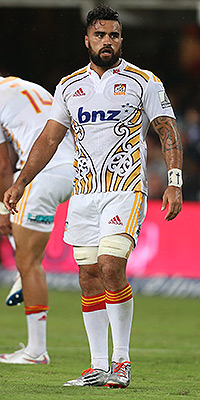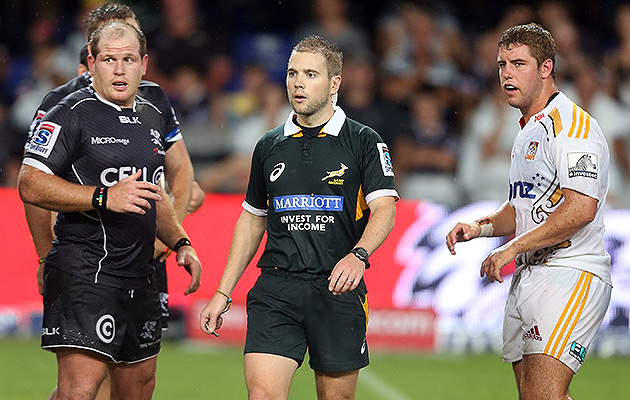Steyn: SANZAR explains the ban
SANZAR, the controlling body for Southern Hemisphere rugby, moved swiftly to defuse the storm that erupted in the wake of Springbok Francois Steyn's five-week ban.
A SANZAR appeals committee – chaired by Terry Willis (Australia), who was assisted by Nigel Hampton (New Zealand) and Robert Stelzner (South Africa) – slapped the ban on the Sharks utility back after a hearing earlier this week.
Steyn, who was red-carded for his lifting tackle on Aaron Cruden in the Sharks' 12-11 win over the Chiefs on March 21, was cleared by South African judicial officer Jannie Lubbe at the original hearing on Match 23. He also expunged Steyn's red card.
However, SANZAR felt strongly about the message sent out by the result of the original hearing and appealed.
That hearing, which took place on Tuesday this week, found Steyn guilty and suspended him up to, and including, May 3.
In reaction to the fall-out to their appeal and subsequent ban of Steyn, SANZAR said they felt Lubbe made a 'clear error of fact and law'.
The public outcry aimed at SANZAR hinted at 'inconsistency' in how SANZAR treat South African players – when compared to their New Zealand and Australian counterparts.
The two Sharks players – captain Bismarck du Plessis (four weeks for kicking an opponent) and Steyn (five weeks after the SANZAR appeal) – were both handed substantial bans in the wake of the spiteful encounter.
Yet two Chiefs players – Liam Messam (guilty of choking an opponent, but not banned) and Hikawera Elliot (one week ban for dangerously  charging into the back of an opponent) – got off with proverbial slaps on the wrists.
charging into the back of an opponent) – got off with proverbial slaps on the wrists.
However, SANZAR said they are all "very different" cases.
SANZAR also provided this website with a briefing of the reasons behind the decision to appeal and subsequently ban of Steyn.
"Under World Rugby Regulation 17 [which SANZAR is bound by] the tournament organiser has a right of appeal," a SANZAR spokesman told rugby365.
"As a result, SANZAR has this right in its own rules.
"The right of appeal will only rarely be exercised as there is a threshold that must be met. SANZAR cannot appeal simply because it doesn't like a particular decision or because SANZAR would have imposed a different sanction than the judicial officer had SANZAR been the decision maker hearing the case.
"The onus is on SANZAR to prove that the judicial officer made a clear error of fact or law in reaching his decision and therefore the decision was wrong.
"What differentiated this case from others is that the judicial officer ruled that there was no foul play, that the referee had made an incorrect decision in issuing a red card and that the red card should be expunged from the player's record.
"In SANZAR's view, he made clear errors both of fact and law in making the findings he did and the judicial officer's decision would cause real doubt as to how these type of tackles should be treated by referees, citing commissioners, judicial officers and ultimately those playing and coaching the game.
"Player safety is paramount. Tip tackles in breach of Law 10.4(j) have a high risk of serious – or even catastrophic – injury and need to be eradicated from the game.
"For this reason, having considered all the evidence, SANZAR reached a view that the original decision by the judicial officer was wrong and SANZAR exercised its right of appeal.
"The appeal committee consisted of three highly qualified and very experienced Judicial Personnel [one from each SANZAR country]."
SANZAR also said the appeal committee's full written decision will be available in the coming days and this will provide the full rationale for the decision it has reached.
By Jan de Koning
@King365ed
@rugby365com
































